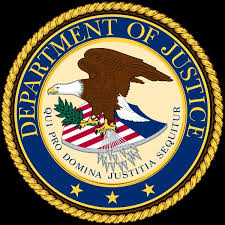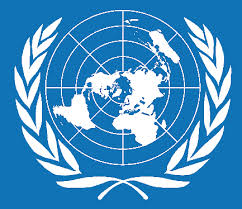-
CIVILIANS' RIGHTS IN TIME OF WAR - GENEVA CONVENTION (IV)1949
- WAR CRIME - U.S. 18 USC § 2441
- WAR OF AGGRESSION - THE UN CHARTER
- IMPEACHABLE CRIME - U.S. CONSTITUTION
- TREASON - U.S. 18 USC § 2381
- EXPERIMENTATION - UN COVENANT ON CIVIL RIGHTS
- EXPERIMENTATION - THE NUREMBERG CODE

THE GENEVA CONVENTION (IV) 12 AUGUST 1949
The war victims right to aid from a (former) occupying power.
Article 50: The orphans' right to having every need met, including education
Article 55, 56, and 59: The victims' right to food, clothing, and treatment.

DEATH PENALTY FOR WAR CRIME
18 USC § 2441
(a) Offense.— Whoever, whether inside or outside the United States, commits a war crime, in any of the circumstances described in subsection (b), shall be fined under this title or imprisoned for life or any term of years, or both, and if death results to the victim, shall also be subject to the penalty of death. (b) Circumstances.— The circumstances referred to in subsection (a) are that the person committing such war crime or the victim of such war crime is a member of the Armed Forces of the United States or a national of the United States (as defined in section 101 of the Immigration and Nationality Act). (c) Definition.— As used in this section the term “war crime” means any conduct— (1) defined as a grave breach in any of the international conventions signed at Geneva 12 August 1949, or any protocol to such convention to which the United States is a party;

COALITION A FORMER OCCUPYING POWER
Occupation (the dictionary doesn't define "occupying power"):
"Condition in which territory is under the effective control of a foreign armed force"
Dictionary of Military and Associated Terms. US Department of Defense
The situation in Iraq and Afghanistan was occupation, by above definition, in the time period between the invasions and till the two countries had national governments. This means that the coalition is a former occupying power.

THE UN CHARTER (1945)
Article 2, 4 Military action against another country is prohibited except in
Article 51 self-defense, which is only lawful against a launched attack.
Article 39 It requires a UN mandate to go to war on a threat assessment.
- Bush admits Iraq had nothing to do with the 9/11 attack so art. 51 does not apply.
- A claim of weapons of mass destruction in Iraq is under threat assessment, art. 39 therefore applies.
- The UN did not believe there was a threat from Iraq and would not give the requested mandate for war.
The Iraq war is therefore a war crime.

US CONSTITUTION, ARTICLE 1
The president can't declare war, that's the right of Congress.
Violation of the first article of the constitution is an impeachable offense.

TREASON
18 USC § 2381
Whoever, owing allegiance to the United States, levies war against them
or adheres to their enemies, giving them aid and comfort within the
United States or elsewhere, is guilty of treason and shall suffer death,
or shall be imprisoned not less than five years and fined under this
title but not less than $10,000; and shall be incapable of holding any
office under the United States.

THE RIGHT TO FREEDOM FROM EXPERIMENTATION
THE UN COVENANT ON CIVIL RIGHTS
Article 7
"No one shall be subjected to torture or to cruel, inhuman or degrading treatment or punishment. In particular, no one shall be subjected without his free consent to medical or scientific experimentation."
This article derives from the Nuremberg Code (below) adopted in connection with the Nuremberg Trials against the Nazis.

THE RIGHT TO FREEDOM FROM EXPERIMENTATION
Adopted in connection with the Nuremberg Trials against the Nazi doctors. First section reads: The voluntary consent of the human subject is absolutely essential.
It continues: "This means that the person involved should:
- have legal capacity to give consent
- be so situated as to be able to exercise free power of choice, without the intervention of any element of force, fraud, deceit, duress, over-reaching, or other ulterior form of constraint or coercion
- have sufficient knowledge and comprehension of the elements of the subject matter involved, as to enable him to make an understanding and enlightened decision
This latter element requires that, before the acceptance of an
affirmative decision by the experimental subject, there should be made
known to him the
- nature
- duration
- purpose of the experiment
- method and means by which it is to be conducted
- all inconveniences and hazards reasonably to be expected
- the effects upon his health or person, which may possibly come from his participation in the experiment
The duty and responsibility for ascertaining the quality of the consent
rests upon each individual who initiates, directs or engages in the
experiment. It is a personal duty and responsibility which may not be
delegated to another with impunity".
The Nuremberg Code has 10 sections (see link below). The most important read:
"4. The experiment should be so conducted as to avoid all unnecessary physical and mental suffering and injury.
5. No experiment should be conducted, where there is an apriori reason to believe that death or disabling injury will occur; except, perhaps, in those experiments where the experimental physicians also serve as subjects.
7. Proper preparations should be made and adequate facilities provided to protect the experimental subject against even remote possibilities of injury, disability, or death.
8. The experiment should be conducted only by scientifically qualified persons. The highest degree of skill and care should be required through all stages of the experiment of those who conduct or engage in the experiment.
9. During the course of the experiment, the human subject should be at liberty to bring the experiment to an end, if he has reached the physical or mental state, where continuation of the experiment seemed to him to be impossible.
10. During the course of the experiment, the scientist in charge must be prepared to terminate the experiment at any stage, if he has probable cause to believe, in the exercise of the good faith, superior skill and careful judgement required of him, that a continuation of the experiment is likely to result in injury, disability, or death to the experimental subject".
"Trials of War Criminals before the Nuremberg Military Tribunals under Control Council Law No. 10", Vol. 2, pp. 181-182. Washington, D.C.: U.S. Government Printing Office, 1949.]
'Detainees were regularly injected with overdoses of mefloquine, an anti-malaria drug that induces paranoia and nightmarish hallucinations.The chief of interrogations at Guantanamo, Major General Geoffrey Miller, had previously been in charge at the notorious Abu Ghraib prison.Miller referred to Guantanamo as ‘America’s Battle Lab’,'
Source: